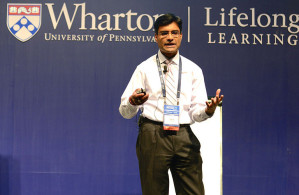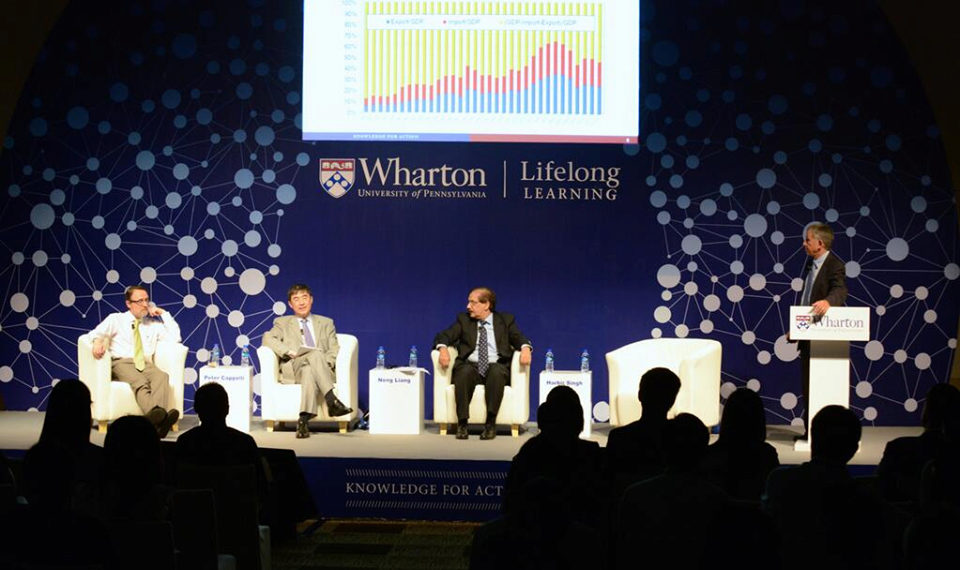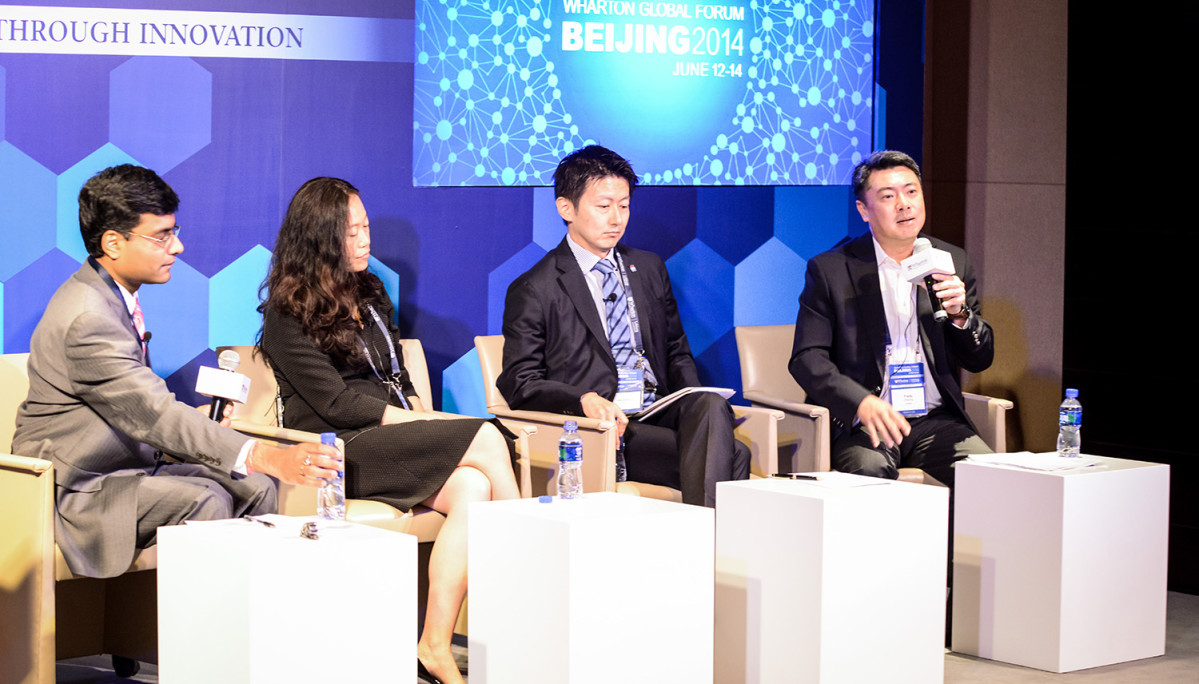 By Executive Director Saikat Chaudhuri
By Executive Director Saikat Chaudhuri
In today’s global economy, Asia’s current role as a major growth driver is poised to keep increasing into the future. Countries such as China, South Korea, India, and Japan are emerging as the latest hotbeds of innovation. For companies and institutions wishing to perform on the world stage, engagement with this region is key.
I recently returned from the Wharton Global Forum in Beijing, one of the largest in the School’s history with over 600 attendees. This yearly event started as an alumni get-together but has grown into a summit involving a wide array of senior executives and government leaders who discuss business and policy matters of regional importance. With a healthy mix of networking opportunities and content sessions focusing on Asia and specifically China, the Beijing event was needless to say an inspiring potpourri of ideas and influence fueled by its dynamic setting.
The Mack Institute’s presence in this particular Forum was especially appropriate, given the theme of “Growth through Innovation,” and as such, we led or contributed to multiple sessions. Co-director Harbir Singh participated in a panel discussion based on his research on distinctive Chinese leadership practices. He observed that Chinese business leaders, in absence of clear ideology in society, create theories of management and human behavior, based on which they implement practices and policies across firms. As a result, there is a strong cohesion in their approaches.
 My own master class focused on the changing nature of outsourcing innovation: As corporations evolve into globally distributed virtual organizations in order to tap into worldwide markets and resources, outsourcing is shifting from the peripheral to core activities of the firm. Outsourcing relationships are increasingly becoming partnerships rather than just transactional exchanges, and as a result, outsourcing is increasingly viewed as a key corporate growth and development strategy.
My own master class focused on the changing nature of outsourcing innovation: As corporations evolve into globally distributed virtual organizations in order to tap into worldwide markets and resources, outsourcing is shifting from the peripheral to core activities of the firm. Outsourcing relationships are increasingly becoming partnerships rather than just transactional exchanges, and as a result, outsourcing is increasingly viewed as a key corporate growth and development strategy.
I also moderated a panel discussion on leveraging emerging markets for global innovation, based on my own work. Developing markets are increasingly a source for not just innovative products and services, but also new processes and business models. These innovations initially take shape to satisfy local needs, but subsequently spread to other countries. Leading firms can make the most of this shift by cultivating a global R&D network capable of tapping into local conditions the world over, allowing the firm to optimally innovate a particular product/ service for rollout locally but export elsewhere thereafter. It’s an undoubtedly challenging endeavor, but should be viewed as a long term investment.
 Of further note was a captivating talk by the chairman and CEO of Haier, the Mack Institute’s latest corporate partner, who outlined how his company’s management practices challenge typical practices of the West. For example, the company follows a “platform” approach, by which it is subdivided into small self-organizing units. Additionally, Haier embraces a philosophy of extreme customer centricity: employees working closest to the customer are held in high regard, as they are viewed as conduits of information for product development.
Of further note was a captivating talk by the chairman and CEO of Haier, the Mack Institute’s latest corporate partner, who outlined how his company’s management practices challenge typical practices of the West. For example, the company follows a “platform” approach, by which it is subdivided into small self-organizing units. Additionally, Haier embraces a philosophy of extreme customer centricity: employees working closest to the customer are held in high regard, as they are viewed as conduits of information for product development.
Finally, the Forum included a lively panel discussion on the rise and impact of MOOCs in higher education, a topic which was the subject of a recent workshop hosted by the Mack Institute. Massive open online courses are extending unprecedented global access to people who wouldn’t normally be able to partake in higher education, expanding the university’s role in society. Though MOOCs attract recurrent scrutiny about the value of a degree when information is freely available online, their demonstrated ability to attract in-person students offers compelling arguments in their favor.
This is of course just a sampling of the three-day program, and I hope some of you can join us at one of the upcoming Global Forums, as the Mack Institute continues to expand its global presence!



